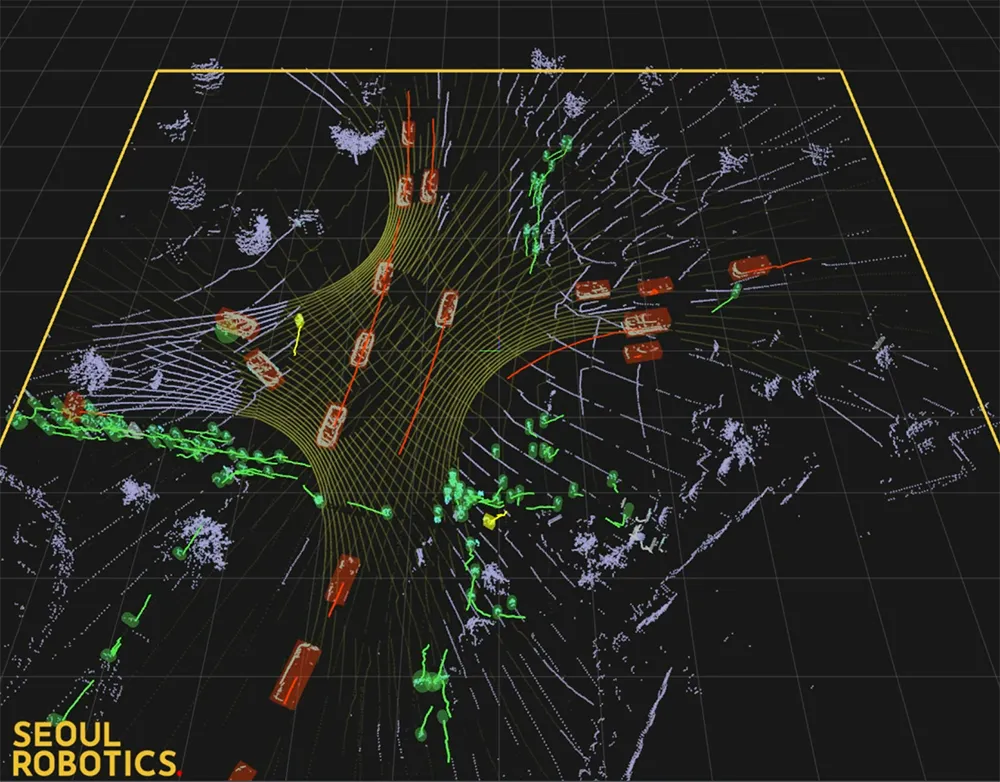Canadian solid-state advanced driver assistance systems (ADAS) LiDAR specialist LeddarTech has unveiled key insights about its LeddarCore IC roadmap, which aims to enable low-cost, high-performance solid-state LiDARs for multiple automotive safety applications, from ADAS to autonomous driving.
LeddarTech has two LeddarCore IC programs are in progress: the LC-A2, targeting the automation layers 1 to 3, with the first samples scheduled for the second half of 2017, and the LC-A3, which will meet the specifi
June 30, 2016
Read time: 2 mins
Canadian solid-state advanced driver assistance systems (ADAS) LiDAR specialist 84 LeddarTech has unveiled key insights about its LeddarCore IC roadmap, which aims to enable low-cost, high-performance solid-state LiDARs for multiple automotive safety applications, from ADAS to autonomous driving.
LeddarTech has two LeddarCore IC programs are in progress: the LC-A2, targeting the automation layers 1 to 3, with the first samples scheduled for the second half of 2017, and the LC-A3, which will meet the specifications for automation layers 2 to 4, with an expected sample availability in 2018.
This next-generation LeddarCore ICs enables: Affordable ADAS and autonomous functions, where LiDAR replaces or complements camera and/or radar; High-density 3D point cloud LiDAR for higher levels of autonomous driving; Support for both flash and beam steering LiDAR.
With ranges reaching 250 m, a field of view up to 140 degrees and up to 480,000 points per second (with a resolution down to 0.25 degrees both horizontal and vertical), the LeddarCore ICs will enable the design of affordable LiDARs for all levels of autonomous driving, including the capability to map the environment over 360 degrees around the vehicle.
Analysts expect LiDARs to become a central element of the autonomous car’s sensor suite. The chipsets’ raw data output will make them perfectly suited for advanced sensor fusion solutions that combine data from various types of sensors to provide a holistic perceptual mapping of a vehicle’s surroundings.
The company is currently in the process of selecting a partner for the design, manufacturing and joint commercialisation effort of the new LeddarCore ICs on a large scale.
LeddarTech has two LeddarCore IC programs are in progress: the LC-A2, targeting the automation layers 1 to 3, with the first samples scheduled for the second half of 2017, and the LC-A3, which will meet the specifications for automation layers 2 to 4, with an expected sample availability in 2018.
This next-generation LeddarCore ICs enables: Affordable ADAS and autonomous functions, where LiDAR replaces or complements camera and/or radar; High-density 3D point cloud LiDAR for higher levels of autonomous driving; Support for both flash and beam steering LiDAR.
With ranges reaching 250 m, a field of view up to 140 degrees and up to 480,000 points per second (with a resolution down to 0.25 degrees both horizontal and vertical), the LeddarCore ICs will enable the design of affordable LiDARs for all levels of autonomous driving, including the capability to map the environment over 360 degrees around the vehicle.
Analysts expect LiDARs to become a central element of the autonomous car’s sensor suite. The chipsets’ raw data output will make them perfectly suited for advanced sensor fusion solutions that combine data from various types of sensors to provide a holistic perceptual mapping of a vehicle’s surroundings.
The company is currently in the process of selecting a partner for the design, manufacturing and joint commercialisation effort of the new LeddarCore ICs on a large scale.








